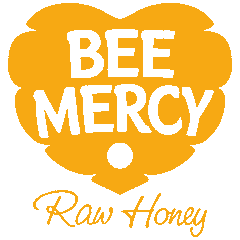FAQ
What is Raw Honey?
Raw honey is honey that has been cold extracted and not pasteurized. It is not infused with any flavouring or other substances. It is straight from the hive. This preserves all its natural beneficial qualities and is real honey.
Unfortunately a lot of honey that is available commercially has been pasteurized, blended with other honeys and in some cases even mixed with other substances such as refined sugars. This removes all the natural benefits of the honey. It essentially kills it.
Does Honey Expire?
In it's natural sense Raw Honey does not expire and will last forever. There has been reports of honey being found in Egyptian Tombs and still being edible. However, over a period of time it will crystallise, but it is not spoiled. For legal reasons we have to state a 'Use by' date of 2 yrs.
What is honey crystallisation?
The crystallisation of raw honey is a natural and spontaneous process. Most pure, raw or unheated honey has a natural tendency to crystallise. Crystallisation does not affect any of the benefits of the honey. There may be slight changes in taste & colour. Many people prefer the crystallised honey as it is easier to work with and don't get sticky!
Read a more in depth description on our blog 'Crystal Clear'
How do i make my honey runny again?
Simply place your jar of raw honey in a glass bowl, quarter fill a pan with boiling water then place the bowl into the pan. The steam should heat the bowl, which heats the jar with out over heating it. Keep the water boiling by turning up the heat on the hob. Your honey should be runny again in 10 minutes or so (depending on size).
What does 'free from Antibiotics and Pesticides' mean?
All Bee Mercy honey is produced from bees feeding on sources that have not been treated with pesticides. In addition, when the bees become sick (yes that's right, bees get sick too), they are not treated with antibiotics. They are treated with an organic compound remedy.
Is your honey processed or pasteurised?
No. We cold extract the honey and it is only gently warmed to be able to jar it. Pasteurisation is a process of boiling the honey to 75-80 degrees in order to blend the honey if it is from different hives around the world. Sometimes from places where the honey is factory farmed and is cheap. It is also used to slow down the crystallisation process to make it more ascetically pleasing. However, this process kills all the natural goodness of the honey and you are left with just the sugar. This is not the case with Bee Mercy Raw Honey.
How is honey produced?
The honeybee collects the nectar from deep within the flowers, churns it and adds enzymes within it's honey stomach. This is what makes it sweet. Then it is regurgitated to the worker bees in the hive. The worker bees then store it in the wax capsules and seal it over.
We harvest a percentage of the honey in Spring and Summer and only if the harvest has been good enough to allow the excess to be taken. We do this by gently removing some of the frames and extracting the honey. We always leave enough for the bees.
How is Pollen produced?
Pollen is collected on the fur of bee when it is foraging for nectar. The bee gently moves this pollen into little pollen sacks on it's back legs. This pollen is used to feed the young of the hive and also for pollination. When the bee returns to the hive, some of this pollen is knocked off when it enters the hive. This is what we collect. There is no detrimental effect to the sustainability of the hive.
Why is Raw Honey not suitable for children under 1 year of age?
Studies have shown that infants on a diet with Raw honey had better blood formation and a higher weight gain. Raw honey is better tolerated by young than sucrose and showed less throw up. When compared to water, honey significantly reduces crying phases in babies, a better skin colour, no digestive problems, and these infants were less likely to develope diseases.
There is a health concern regarding honey as it contains the bacteria clostridium botulinum. Since honey is a non sterilized packaged food, there is a risk of this bacteria surviving in honey however these traces of bacteria cannot produce toxins in the honey.
The issue is that in the stomach of infants younger than the age of one, the bacteria can theoretically survive and build the toxin in the stomach however children over the ages of 12 months can ingest honey without any risk. In some cases infant botulism has been reported about 1 a year and hence why we place a warning on the label that “Not suitable for children under 1yr”.
Does raw honey contain sugar?
Yes, but a different sugar to refined sugar. The majority of raw honey is fructose, but it is the natural complex type of fructose. It takes longer for the body to absorb and is not an aggressive sugar like refined chemical white sugar. Therefore, it is a slow release of energy and not a massive sugar spike. This can vary between honeys. For those suffering from Diabetes, we always recommend a small amount first and measuring yourself when increasing.
Is Raw Honey the same as Manuka Honey?
Manuka honey is from New Zealand and is from the Tea Tree species called Manuka. Due to scientific & marketing investment, it has proven strength levels of antibacterial properties. Raw honey is comparable to Manuka. It is historically proven that raw honey has been used for thousands of years for various illnesses.
Recent reports have shown that 1700 tonnes of Manuka honey are consumed by the UK each year but only 1600 tonnes are produced. And the UK is not the only country consuming Manuka. In addition, not all Manuka is raw and unpasteurised. That being said, real Manuka honey does have some good properties. We are sure with more scientific investment, raw honey will be known to be just as good.
How should I store my Honey?
Always store your Raw honey is a dry place at room temperature keeping the lid secure. This is the same if opened or sealed.


